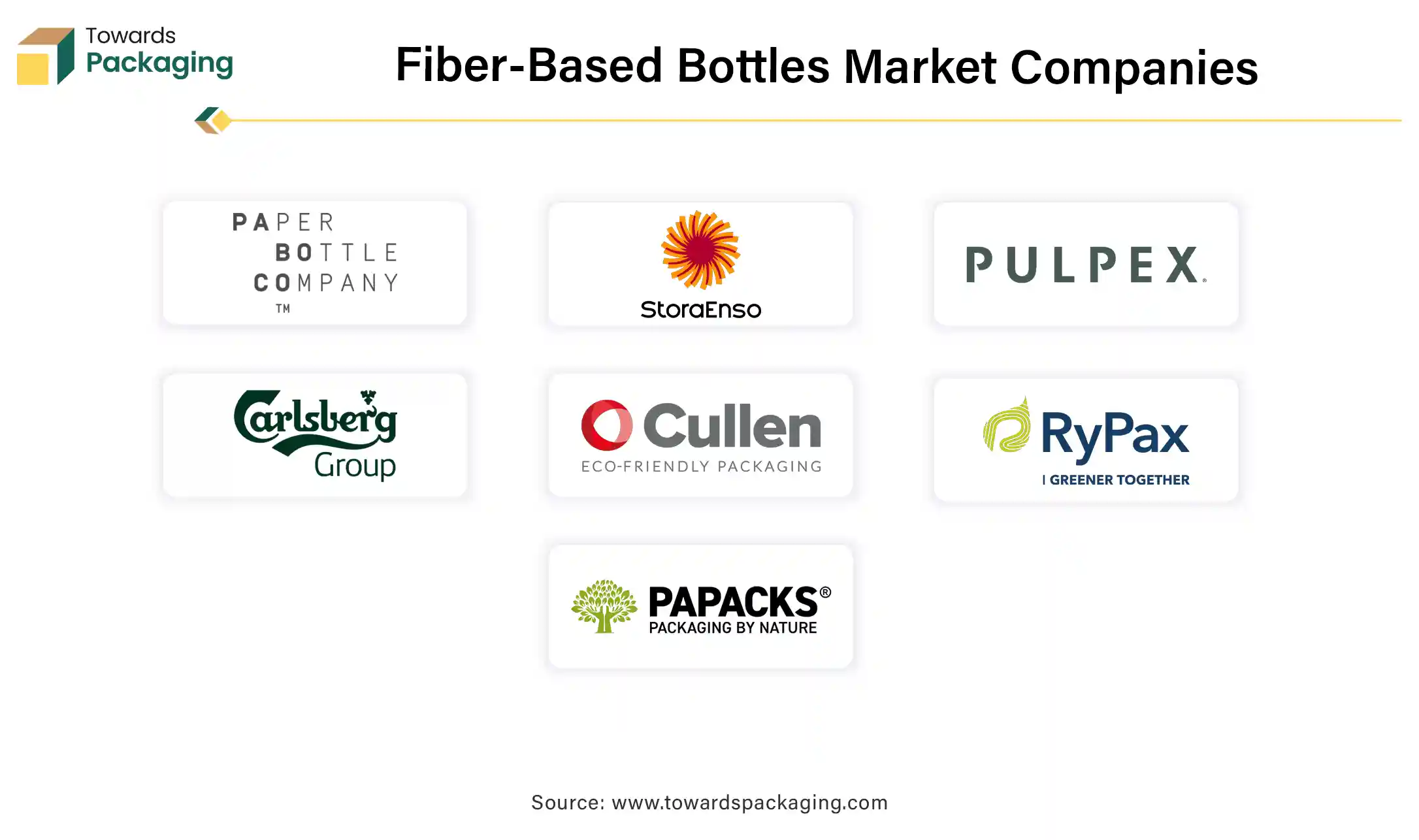The fiber-based bottles market is growing quickly, with revenue expected to reach hundreds of millions between 2025 and 2034. This market will see strong growth during the forecast period. Fiber-based bottles are eco-friendly packaging options made mainly from renewable, plant-based materials such as recycled paper fibers or wood pulp. These bottles are lightweight, biodegradable, and often recyclable, designed to replace traditional plastic or glass bottles.
The use of fiber bottles is expanding into new industries such as medicine, healthcare, and cosmetics, where such packaging was not common before. Their production process also releases less CO2 compared to plastic and other traditional materials. Fiber-based bottles can be used for water, alcoholic beverages, dairy products, non-carbonated soft drinks, detergents, and skincare and haircare products.
Recent Developments by Key Market Players
- In May 2024, Diageo revealed current plans to test paper-based packaging for the Original Irish Cream Liqueur, Baileys. Diageo is testing a Dry Molded Fiber bottle, which is 90% paper with a foil closure and a thin plastic liner, as a part of the Bottle Collective with PA and PulPac in collaboration with PA Consulting. This is Diageos first consumer-facing experiment using paper-based bottles. It will examine how the bottles are transported from the Irish filling facility to Barcelona, as well as how customers engage with the material and comprehend the paper bottles sustainability features.
- In March 2024, Logoplaste partnered with the Bottle Collective, a technological partner of PA Consulting and PulPac, with the goal of developing single-use, fiber-based bottles. As a member of the Bottle Collective, which unites packaging producers and brands from several industries in an effort to hasten the transition to sustainable single-use bottles, Logoplaste joins multinational corporations Haleon, Diageo, and Sanofi.
- In February 2024, The Paper Bottle Company, Paboco, began producing its paper-based bottle product on a large scale at its Slangerup, Denmark, facility with the goal of producing more than 20 million fiber-based bottles by the end of 2025. However, the "Next Gen Paper Bottle" still has a plastic component, which the firm refers to as a "minimal barrier solution." The precise percentages vary based on the bottle form and intended use, however Paboco claims that the solution is 85% paper and the remaining 15% is made up of an HDPE barrier.
Fiber-Based Bottles Market Players

- Paboco
- Stora Enso
- Pulpex
- Carlsberg Group
- Robert Cullen Ltd
- RyPax
- CelluComp
- PAPACKS
Become a valued research partner with us, please feel free to contact us at sales@towardspackaging.com
Keypoints
- Company Overview
- Locations Subsidiaries/Geographic reach
- Key Executives
- Company Financials
- Patents registered
- SWOT Analysis
- Applications Catered
- Strategic collaborations
- Recent Developments
- Competitive Benchmarking
